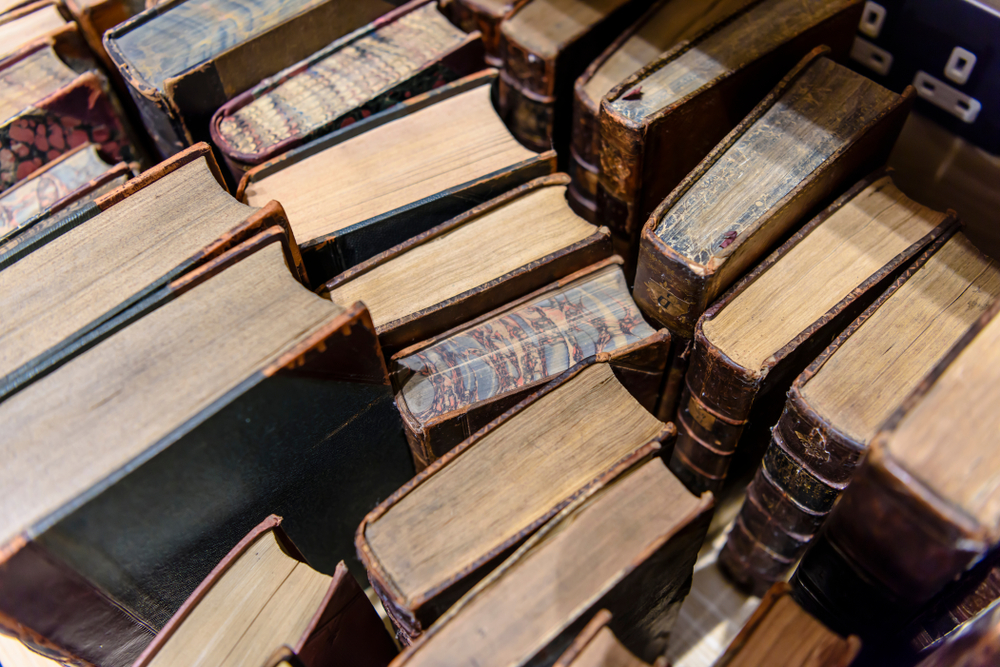The 50th Economic and Social History Society of Ireland Conference takes place at University College Dublin, 17th and 18th November 2023.
50th Economic and Social History Society of Ireland Conference
Register here
Registration: 9.00-9.30
Session 1 (Panels 1, 2 & 3): 9.30-10.50
Panel 1: Provision for Hunger and Poverty in 19th Century Ireland
Humanities Institute H204 (top floor)
Chair: Catherine Cox
Lauren Smyth (Queen’s University Belfast) – Belfast Charitable Society and pauper apprenticeships in the growing industrial town, 1800-1851
Sorcha Clarke (Ulster University) – The language of letters: Petitioning for charity on an Ulster landed estate, 1850-1900
Constantin Torve (Queen’s University Belfast) – Moll Doyle and her children: The evolution of a lower-class protest repertoire, 1807-1860
Panel 2: Economic Development in 20th Century Ireland
Agnes McGuire SWB C001 (ground floor)
Chair: Robin Adams
Cathal Burke O’Leary (Dublin City University) – Taxation and State-building in the Irish Free State
Anna Devlin (Trinity College Dublin) – ‘Ireland, for some time, has been living in a fever of economics’: Economic interest associations and national development in early twentieth century Ireland
Alan de Bromhead (University College Dublin) – Irish Regional GDP since Independence
Panel 3: Impacts of War and Revolution
Agnes McGuire SWB C102A (first floor)
Chair: Carly Collier
Barry Keane (Independent) – Protestant population dynamics in early twentieth-century Ireland
Olesia Zhytkova (Dublin City University) – Corruption, Russian war, and post-war reconstruction of Ukraine
Andrew Dorman (Trinity College Dublin) – ‘Subduing the civil power’: The army-societal relationship in eighteenth century Ireland
Break: Humanities Institute (Top Floor) 10.50-11.10
Session 2 (Panels 4, 5 & 6): 11.10-12.30
Panel 4: Trade and Urban Development in Early Modern Ireland
Agnes McGuire SWB A006 (ground floor)
Chair: Sarah Roddy
Sandrine Tromeur (Maynooth University) – “Except for the risks, perils and fortunes of the sea and war”: Irish merchants of La Rochelle and maritime trade during the second Anglo-Dutch war, 1665-1667
David Brown (Trinity College Dublin) – Trading their way through it: Ireland’s imports and exports during and after the Wars of the Three Kingdoms, 1641-1670
Bríd McGrath (Trinity College Dublin) – Local democracy in early modern Limerick
Panel 5: Women in 20th Century Ireland
Humanities Institute H204 (top floor)
Chair: Catherine Cox
Kate O’Keeffe (South East Technological University) – Lady Clerks to CEO’: A biographical narrative exploration of the challenges, opportunities, and educational programmes for female bank workers since the lifting of the Marriage Bar in Ireland
Shannon Hughes Spence (South East Technological University) – ‘The Control of Women’s Bodies in Ireland – from 1930s Dance Halls to Modern Nightclubs’
Patrice Maguire (Dublin City University) – Irish youth, a changing Ireland and agony aunt columns, 1963 -1975
Panel 6: Industries and Industrialisation in 19th Century Ireland
Agnes McGuire SWB C102A (first floor)
Chair: Robin Adams
Leslie E. E. Donaldson (Independent) – “… wretched, crowded little buildings …”: The application of The Artizans and Labourers Dwellings Act, 1875 in Belfast 1877
Norma Owens (University of Galway) – Was the Cong lace industry better than Home Rule?
Catherine Ann Cullen (University College Dublin) – Lasting Impressions?: Mapping two printers of the nineteenth-century Dublin tenements, their clients and audiences
Declan Monaghan (Maynooth University) – The origins and the history of the Irish National Stud from 1900 to 2021
Lunch: Humanities Institute (Top Floor) 12.30-13.30
Session 3 Roundtable: ‘The past and prospects for social and economic history in Ireland’: 13.30-15.00
Humanities Institute H204 (top floor)
David Dickson (Trinity College Dublin)
Catherine Cox (University College Dublin)
Graham Brownlow (Queen’s University Belfast)
Eoin McLaughlin (Heriot-Watt University)
Deirdre Foley (Trinity College Dublin)
Aine Doran (Ulster University)
Break 15:00-15:10
Session 4 (Panels 7 and 8) 15:10-16:10
Panel 7: Histories of Irish LGBTQ+ Emigration
Humanities Institute H204 (top floor)
Chair: Catherine Cox
Daniel Gallen (University of Galway) – London Calling: Imagining the Irish LGBTQ+ emigrant experience in London, 1967-1993
Michael Lawrence (Queen’s University Belfast) – “I cannot forget that I am supposed to be something that I am not”: Male Homosexuality and Emigration in Ireland, 1891-1922
Panel 8: Trade and Urban Development in Medieval Ireland
Agnes McGuire SWB C102A (first floor)
Chair: Robin Adams
Catherine Swift (Mary Immaculate College) – Episcopal development of urban manors and market towns in thirteenth-century Limerick
Tadgh Farrell (Trinity College Dublin) – A Gaelic Merchant Prince: Turlough “an fhiona”, the first O’Donnell fish lord?
Break 16.10-16.25
Session 5 (Keynote): 16.25-17.40
Humanities Institute H204 (top floor)
Chair: Catherine Cox
Erika Hanna (University of Bristol) – ‘Rainfall and the Irish City, 1800-2000’
Conference Reception at UCD University Club 18.00-20.00
Saturday, 18th November 2023
Session 6 (panels 9, 10 & 11): 09.30-10.50
Panel 9: Buffeting the Irish Free State Coffers: Post-Civil War Economic Challenges of Independence
Humanities Institute H204 (top floor)
Chair: Daithí Ó Corráin (Dublin City University)
Pat O’Brien (Dublin City University) – The Irish Tax Man Cometh: Building the tax system in the Irish Free State, 1923-25
Daithí Ó Corráin (Dublin City University) – ‘The most serious financial problem of all’: post-civil war compensation
Gerard Hanely (Dublin City University) – Unemployment 1922-32: ‘a menace to the state’
Panel 10: Histories of the Irish Diaspora in the 20th C
Agnes McGuire SWB C001 (ground floor)
Chair: Robin Adams
Aydin Anil Mucek (University College Dublin) – The racial hierarchies of Irish Missionaries in Africa and their impact on Irish society
Eleanor O’Leary (South East Technological University) – American Parcels: Irish American Diasporic Exchange 1930-2000
Tom McGrath (Maynooth University) – The Irish and the 1922 Rand Revolt: an introductory survey
Panel 11: Social and Cultural Histories of the First World War
Agnes McGuire SWB C102A (first floor)
Chair: Ciarán McCabe
Pauline Gardiner (National Museums NI) and Patrick Fitzgerald (Mellon Centre for Migration Studies) – Wastrels, loafers and drunken rowdies: The life and times of the Irish Corner-boy
Rachel Newell (Queen’s University Belfast) – ‘I did not know he was discharged from the army’: female criminality surrounding separation allowance during the First World War.
Brian Griffin (Maynooth University) – Cartoons in Conflict: Larry O’Hooligan and the First World War
Break 10.50-11.10
Session 7 (panels 12, 13 & 14): 11.10-12.30
Panel 12: Irish Histories of Childhood
Humanities Institute H204 (top floor)
Chair: Carole Holohan
Ursula Callaghan (Independent) and Hélène Bradley Davies (Mary Immaculate College) – Blue Coat: A History of the Blue Coat School Limerick 1724-1881
Jane O’Brien (University of Galway) – “I have nowhere and nothing for him” – Family Involvement at Children’s Committal to the Sister of Mercy run Irish Industrial Schools, 1868-1936
Liam Kennedy (Queen’s University Belfast) – Religious affiliation and child mortality in Ireland: A country-wide analysis based on the 1911 Census
Panel 13: Female Power and Agency in Ireland
Agnes McGuire SWB C001 (ground floor)
Chair: Ciarán McCabe
Fiona Slevin (University College Dublin) – Underestimating women: assessing female proprietorship in post-Famine rural Ireland
Katie Tate (Queen’s University Belfast) – ‘Quite capable of being Governor…herself’: The Northern Irish Governorship and the influence of the Governors’ Wives
Emma Lyons (University College Dublin) – ‘The Christian name belongs to the world of fancy the surname to that of tradition’: Property bequests to daughters in seventeenth-century Ireland
Panel 14: Provision of Education in 19th and 20th C Ireland
Agnes McGuire SWB C102A (first floor)
Chair: Alice Mauger
Declan O’Keeffe (Clongowes Wood College SJ) – ‘Influencing the influential’: Irish Jesuit periodicals
Conor Galvin (University College Dublin) – The Standing Conference on Teacher Education North and South (SCoTENS), Ireland: a social history perspective on a unique and enduring cross-border Learning Community
Seán Lyons (University College Dublin) – Domestic technology and human capital formation: rural electrification and secondary school participation in Ireland
Lunch and ESHSI AGM: 12.30-13.30
Lunch in Humanities Institute (top floor) and AGM in H204
Session 8 (panels 15, 16 & 17): 13.30-14.50
Panel 15: Economic and Social Impacts of War
Humanities Institute H204 (top floor)
Chair: Paul Huddie (University College Dublin)
Jim Deery (Maynooth University) – ‘The socio-economic impact of British recruitment on Ireland during the Napoleonic Wars 1808-1815’
Jack Kavanagh (University College Dublin) – ‘The Free State response to National Army casualties’
Stephen Callaghan (Independent) – ‘The Economics Influences of Birr Barracks’
Panel 16: Transgressive Women in 19th Century Ireland
Agnes McGuire SWB C001 (ground floor)
Chair: Catherine Cox
Helen Doyle (Maynooth University) – Was Bridget McCreedy a ‘dangerous lunatic’?
Marc Caball (University College Dublin) – Prostitution, murder and urban space in an Irish provincial town in 1829
Panel 17: Marginalised Irish Histories in the 20th C
Agnes McGuire SWB C102A (first floor)
Chair: Morgan Wait
Oisín Wall (University College Cork) – ‘National Trauma Dumping: The Memorialisation of Traumatic Social History in Dublin’s North Inner-City’
Darren Coleborne (Queen’s University Belfast) – Whose Movement is it, Anyways?: A Relational Approach to Social Movement Coalescence in Northern Ireland’s People’s Democracy, 1968
Jack Crangle (Maynooth University) – ‘I hated being Irish’: exclusion, discrimination and empowerment in oral histories of Black and mixed race Ireland
Break: 14.50-15.00
Session 9 (panels 19 & 20): 15.00-16.45
Panel 18: 20th C Irish Healthcare Systems
Humanities Institute H204 (top floor)
Chair: Alice Mauger
Julie Crowley (South East Technological University) – Caregiving at Irish Military Hospitals during the First and Second World Wars
Kevin Finnan (Dublin City University) – The January 1921 Hospital Order
Brian Casey (Durham University) – ‘Collaboration, confrontation and care: The Franciscan Missionaries of the Divine Motherhood and the provision of healthcare in provincial Ireland, 1942-1970’
Marie Lynch (St Patrick’s University Hospital) – A decade of Disturbance (1916-1925): The impact of revolution and civil war on presentations of mental illness to Ireland’s oldest psychiatric hospital
Panel 19: Questions of Land and Hunger
Agnes McGuire SWB C001 (ground floor)
Chair: Anna Devlin
Mary Curtin (University of Limerick) – The Legacy of History: Females and Irish Land Ownership
James Beirne (Maynooth University) – The colonisation of Ireland and the history of political economy
David Gahan (Maynooth University) – The 1933 Land Act: Fianna Fáil and land reform
Charles Read (University of Cambridge) – Food-market integration and humanitarian-relief policy: the case of the Great Irish Famine of 1845-52
UCD Clinical Research Centre joins Postgrad.ie.
The UCD Clinical Research Centre (UCD CRC) is an academic led, multi-site centre supporting clinical and translational research. It operates under a single governance structure within the UCD School of Medicine and the College of Health and Agricultural Sciences. The UCD CRC is at the core of the Health research and innovation strategy and provides a focal point for collaborative, multidisciplinary patient-focused research.
The centre links the clinical community to core university research institutes including the UCD Conway Institute, Systems Biology Ireland and the UCD Charles Institute of Dermatology. Over the last 5 years, the UCD CRC has developed a comprehensive taught graduate programme including an MSc in Clinical and Translational Research and a Graduate Certificate in Clinical Trials This exciting education initiative is training the next generation of investigators and research professionals.
The UCD Clinical Research Centre undertakes research in a wide range of diseases.
At the Centre they undertake advanced research in a caring environment that aims to advance medical treatment for all patients suffering from a wide range of illnesses.
The research is a truly multidisciplinary team effort. Doctors, nurses, technicians, scientists and of course, patients work together towards the common goal of developing new cures for serious illnesses.
Patients in particular play the key role. The Centre believe that through their involvement in research studies, patients are making an immense contribution towards the understanding of the mechanism of disease and greatly influence the ability to improve patient outcome in the future












Comments